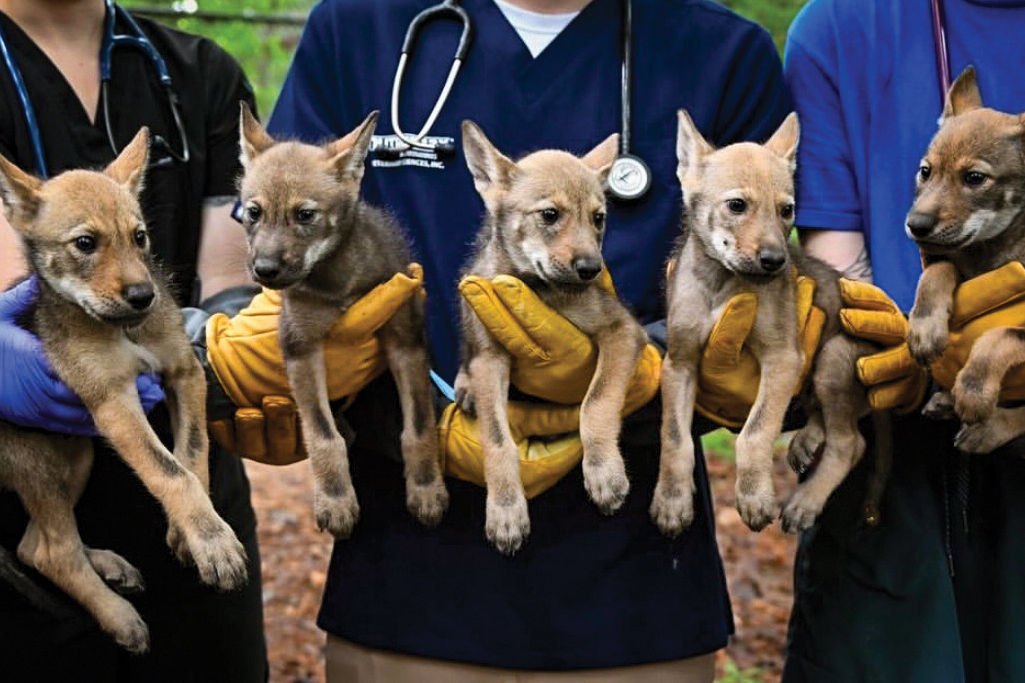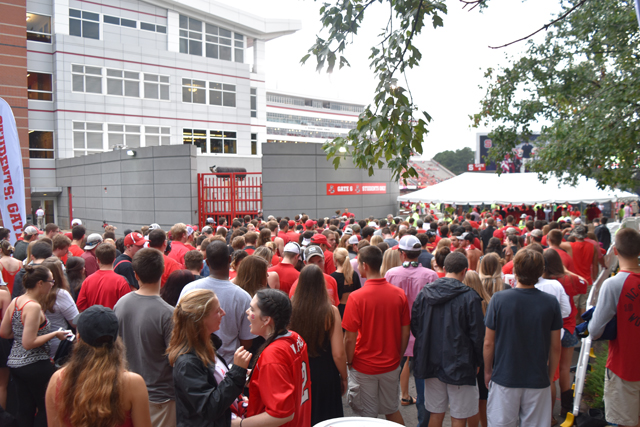The University will host the 59th annual Peanut Field Day Thursday at one of its research farms in Lewiston-Woodville , N.C .
The North Carolina peanut industry adds $17 to $20 million in value added to the economy. With 85,000 acres devoted to the crop, small family farms along the east coast are able to sustain.
Farms that raise the same crop yearly run the risk of contracting invasive plant diseases, according to Crop Science Professor Thomas Isleib . Rotating peanuts among other crops allows the land to revitalize itself and get rid of plant diseases.
“Bacteria can come in if you grow the same crop year after year,” Isleib said. “That’s why it’s good to rotate the crop.”
At a profit margin of $200 per acre, North Carolina, Virginia and South Carolina employ 160,000 acres of their lands to peanuts. Most of those grown go toward the in-shell industry, such as those found at football games, according to Crop Science Peanut Specialist David Jordan.
“The others are sold for cocktail peanuts, candy and peanut butter. That is a much smaller part of where the crops are sold, though,” Jordan said.
The University has dozens of research stations from the coast to the mountains. Plants that are native to the area, or that grow well, are found in appropriate regions, Jordan said.
“All research stations will have crops that are important to that area,” Jordan said.
The Lewiston-Woodville facility, called the Peanut Belt Research Station, mostly focuses on peanuts due to its geographical location.
“The Peanut Belt Research Station focuses on North Carolina’s peanut crop. Extensive research is under way at the station with emphasis on peanut breeding, soil fertility, tillage, pesticide interactions and ecology, and management of weeds, insects and diseases,” according to an event release.
A large plot of land allows researchers to study other crops as well, though.
“All facets of peanut production are studied, from planting to curing. Other research at the 371-acre station involves corn, cotton, soybeans, sorghum, small grains and certain vegetables,” the release said.
The event is a collaboration between the the College of Agriculture and Life Sciences, its extension program, the North Carolina Department of Agriculture and Consumer Services and the state Peanut Growers Association.
Jordan said it is the one day when all of the groups can come together in one place to discuss what they spend the majority of their working lives on: peanuts.
The University offers extension in fields across colleges. Academics meet real world challenges as professors routinely speak at community events.
Jordan will be speaking on agronomy and weed management at the Field Day, and Isleib will talk about variety development.
Most of the event’s activities occur in the first of two days. Four professors from CALS will lead off with talks on topics including insect and disease management, followed by David Smith, presiding associate dean of CALS .
Assistant Commissioner of the N.C . Department of Agriculture and Consumer Services Richard Reich is also on the docket along with the President of the N.C . Peanut Grower’s Association Joey Baker.
After speeches from figures, “special exhibits” around the research facility will be open all day, according to the event release.
CALS hosts other Field Days in addition to the one Thursday. The Bioenergy Field Day will be held Sept. 14 in Mills River, N.C ., which is situated in the mountains of the state.
The N.C . Department of Agriculture and Consumer Services teamed up with the University once again for the event to be held next week.
“The afternoon event will cover topics including the science of cellulosic fuel production, production of energy grasses, cultural management of bioenergy crops, high-oil crops and biodiesel production, sorghum production for biofuels, breeding efforts and genetic improvements of biomass crops, and short rotation woody biomass and southern hardwoods for bioenergy ,” according to the event homepage.
CALS professors will be present to bring their research to the field.




